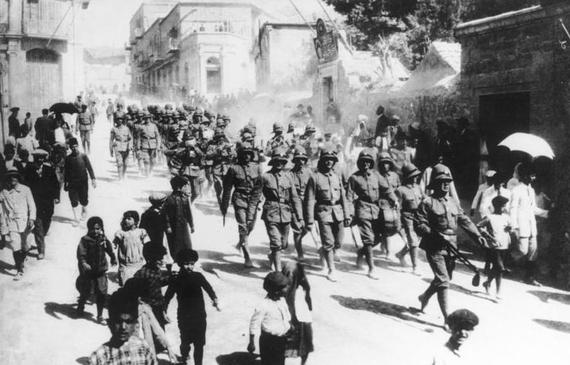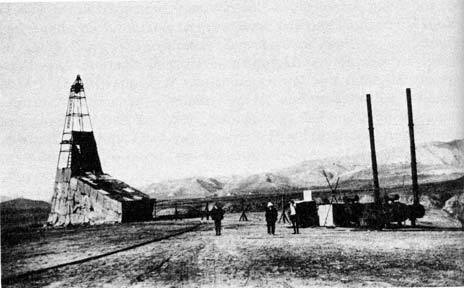The Ottoman Empire in World War I
At the start of the twentieth century, the Ottoman Empire, often referred to as the "sick man of Europe", was in a state of terminal decline. Nominally ruled by the Turkish Sultan Mehmed (Mohammed) V from Constantinople, effective political power was in the hands of the Turkish War Minister, Enver Pasha. Its far-flung provinces, plus assorted vassal and tributary states, had seen many nationalist rebellions and were being increasingly carved off by assorted European powers.
German influence in the government was pervasive. German advisers were present throughout the key ministries and especially within the military. Though trained by the Germans and fielding impressive manpower, the Ottoman military forces were considered no match for any modern western European army. They lacked modern weaponry, especially heavy artillery, and they were always chronically short of ammunition.
Turkish aims during the First World War focused primarily on defeating its historic enemy, Russia, and regaining the territories it had relinquished in the Russo-Turkish war of 1877-78; principally the districts of Ardahan, Kars and Batumi. Instead its principal opponent turned out to be Great Britain, historically an ally, with whom it found itself engaged in a broad front stretching from the Sinai across Arabia, Mesopotamia and, to a lesser degree, Persia. To a certain extent, Turkish forces were used by Germany as proxies to engage Great Britain and Empire forces and tie down the maximum number of troops possible in the Middle Eastern theater. To the German General Staff, every empire soldier deployed in the Middle East was one less soldier available for deployment on the Western Front.
Great Britain's primary aim was to insure its continued control of the Suez Canal. Protecting its interests in the oil fields of Persia, and the refinery at Abadan, was also important. The Royal Navy had recently switched fuel from coal to fuel oil. In doing so it improved the speed and range of its fleet, but at the price of giving up a fuel source that Great Britain had in abundance for one that it had to rely on overseas suppliers for.
Anglo Persian Oil Company Masjid Soleiman Field Well #1, 1908
The Anglo-Persian Oil Company, the genesis of what one-day would become the mighty British Petroleum, had been awarded the contract to supply the Royal Navy with its fuel oil needs. The need to protect the Royal Navy's fuel source, and Britain's extensive investments in the Persian oil fields, plus a desire to expand its influence in the Persian Gulf in general, and the oil fields around Basra in particular thus became an important strategic interest.
Knocking the Ottoman Empire out of the war and reopening the Turkish Straits between the Mediterranean and the Black Sea was also often cited as a major objective, and was the justification of the star-crossed Gallipoli Campaign. While free passage through the Turkish Straits would have allowed a "lifeline" to Russia, it is questionable, given the state of Russia's transportation infrastructure, how much aid could actually have been delivered to Russia and whether it would have reached the front lines where it was so desperately needed.


